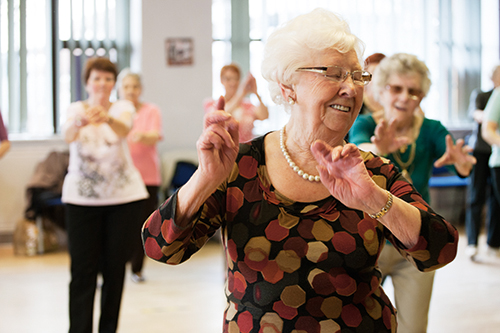Dancing is a great social outlet, a fun form of exercise and will help you slow down the aging process. Hello people, let’s boogie.
Dancing and depression: Australian researchers* found that men and women with mood disorders who participated in a two-week tango instruction program felt less depressed and experienced significant reductions in their levels of stress. Dancing is good activity to keep you social and active.
Dancing and Strength: Dance classes, such as Salsa, can increase an older adult’s strength and balance. A study published in the journal Gerontology found that dancing provides a safe and feasible exercise program for older adults.
Dancing and the Heart: The waltz has aerobic health advantages – similar to traditional forms of cardiovascular exercise, such as cycling or walking. The movements in dancing get your heart beating, reduces stress and even helps with relaxation. Dancing is good for the heart based on a study published in the journal Circulation.
Dancing and Dementia: Dancing appears to offer the best chance of helping stave off dementia. As we age, the part of the brain that controls memory, the hippocampus, begins to shrink. This leads to memory loss and sometimes dementia. However, studies are showing that there’s hope in fighting against it and dancing is one form of activity to help fight the fight. According to a 21-year study led by the Albert Einstein College of Medicine, aging adults who danced regularly had a 76 percent reduced risk for developing dementia. Experts theorize that dancing is beneficial for our brains because it combines cardiovascular exercise with split-second decision making that taxes our neural network, forcing it to create new pathways.
In spite of the health issues facing the elderly in our communities – Parkinson’s disease, dementia, cancer, arthritis, asthma, and heart disease, dancing is a great therapy for each of these ailments. There are many advantages to adding dance into your weekly regime with very few risks based on the studies noted in this post. Before you start dancing the night away, be sure and check with your doctor, especially for those with pre-existing health conditions.
*School of Behavioral, Cognitive and Social Sciences, University of New England
